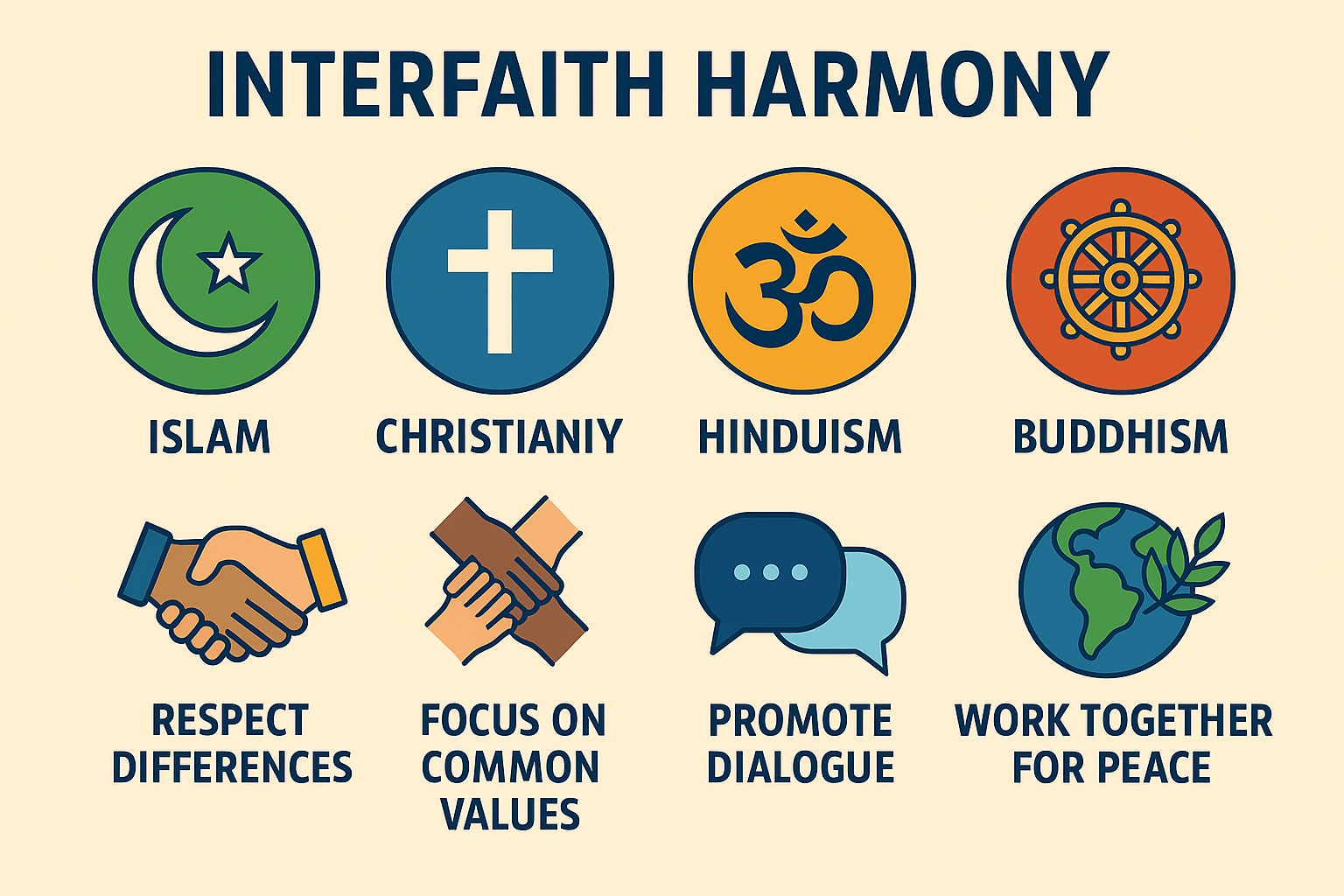Summary
Most major religions, despite their differences, share a common thread of respect and compassion towards others.
Here’s why this perspective matters:
https://populationeducation.org/world-population-by-religion-a-global-tapestry-of-faith/
1. Freedom of Belief
- Every person has the right to choose their faith or worldview.
- Respecting that choice fosters peace and coexistence.
2. Common Ethical Ground
- Many faiths share core values, including kindness, honesty, justice, and care for others.
- Focusing on these shared principles builds bridges.
3. Dialogue Over Debate
- Conversations about faith can be enriching when approached with curiosity, not competition.
- Asking “What does your faith mean to you?” opens understanding without conflict.
4. Why Avoid Arguments
- Faith is deeply personal and often tied to identity.
- Arguments rarely change hearts; empathy and example often do.
5. Here’s an Interfaith Respect Statement you can use or adapt:
Interfaith Respect Statement
We affirm that every person has the right to their beliefs and practices.
We commit to:
-
Respecting diversity of faith traditions without judgment or hostility.
-
Listening with empathy to understand, not to debate.
-
Seeking common ground in values such as compassion, justice, and peace.
-
Rejecting discrimination based on religion or worldview.
-
Promoting dialogue that builds trust and cooperation across communities.
Our shared humanity is greater than our differences. Together, we strive for a world where faith inspires unity, not division.
